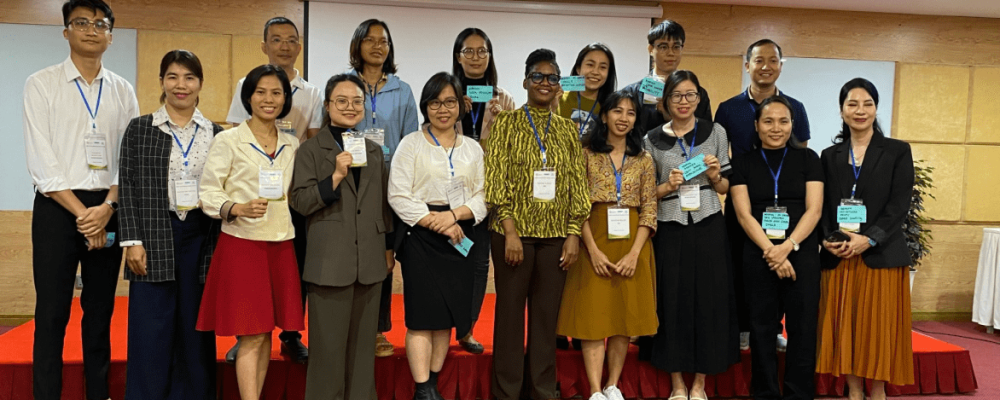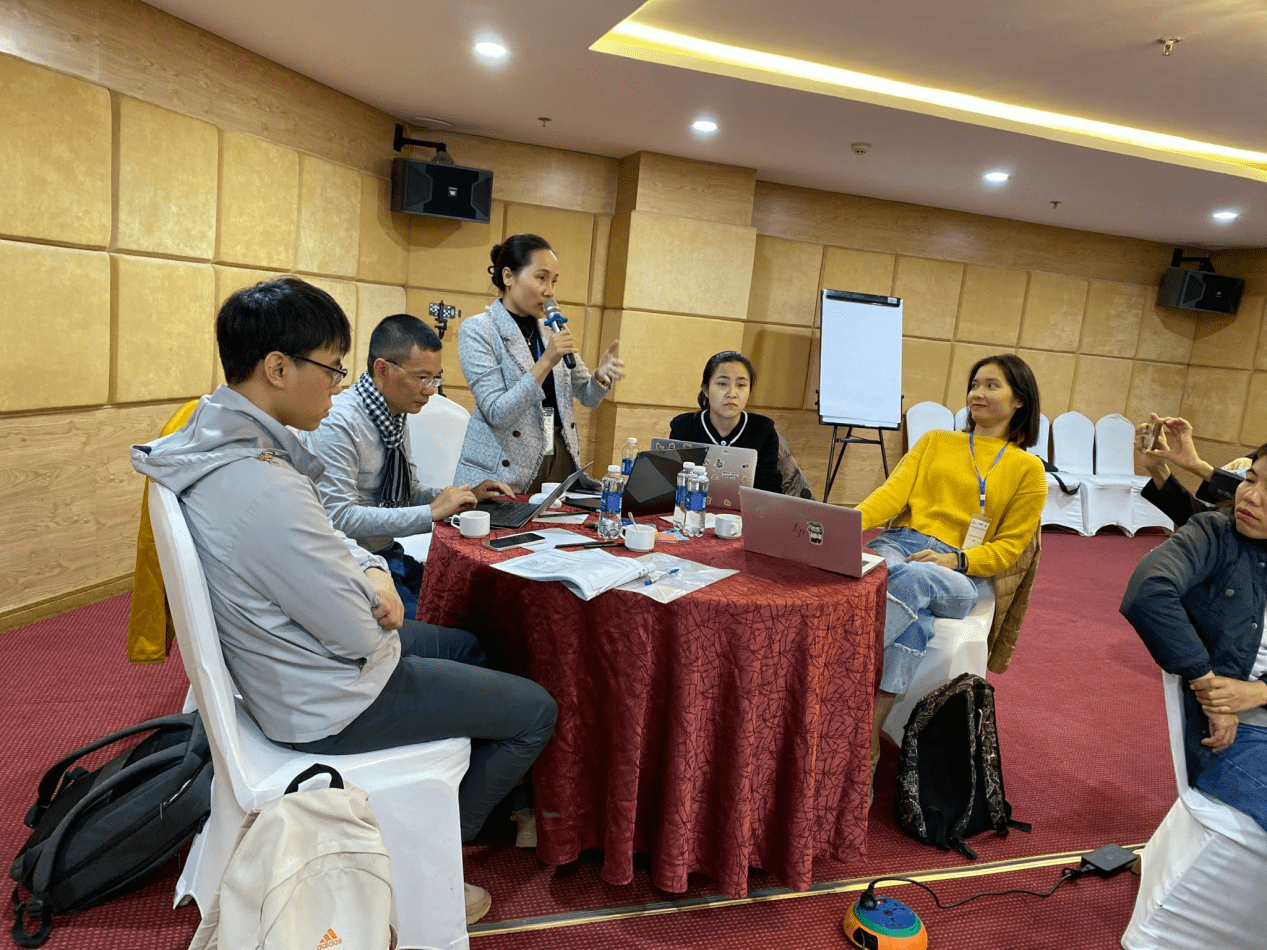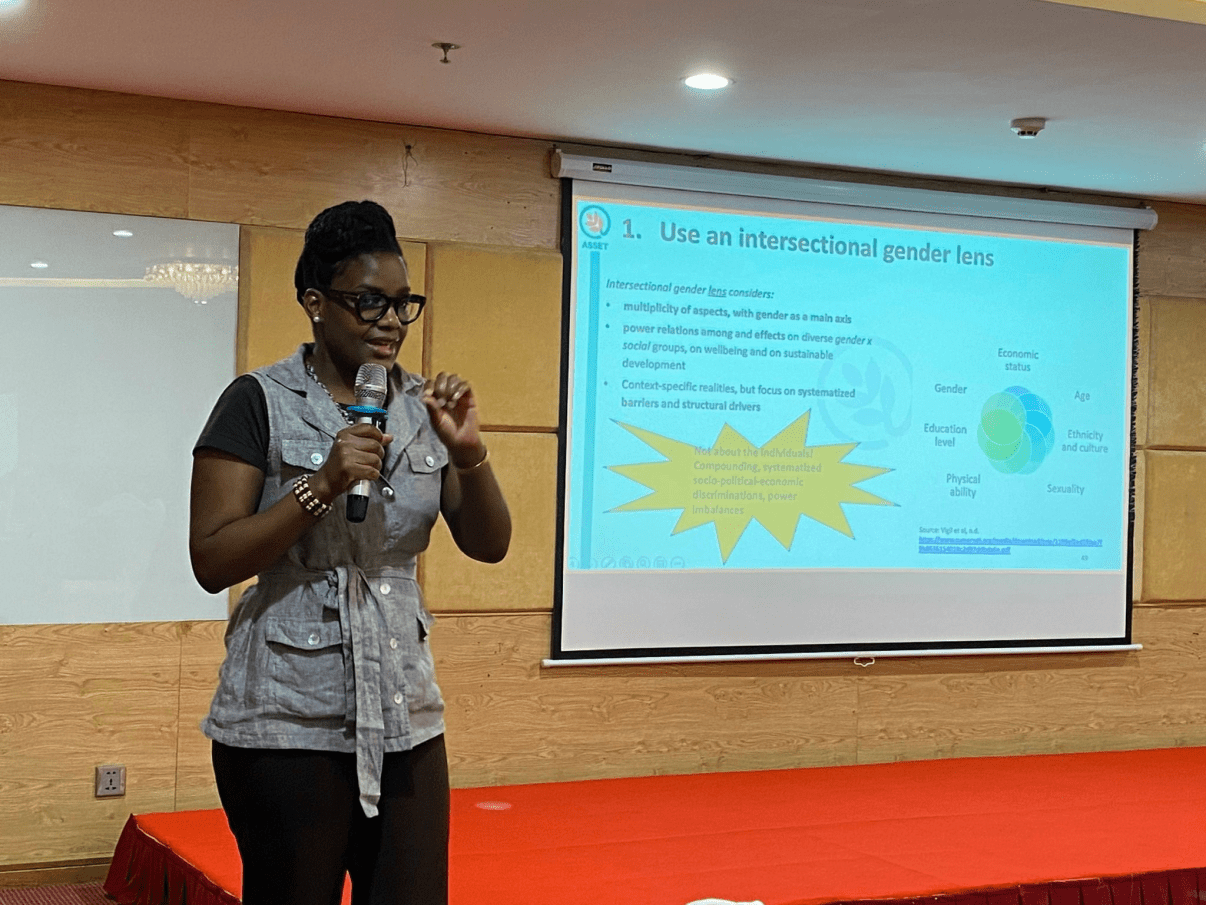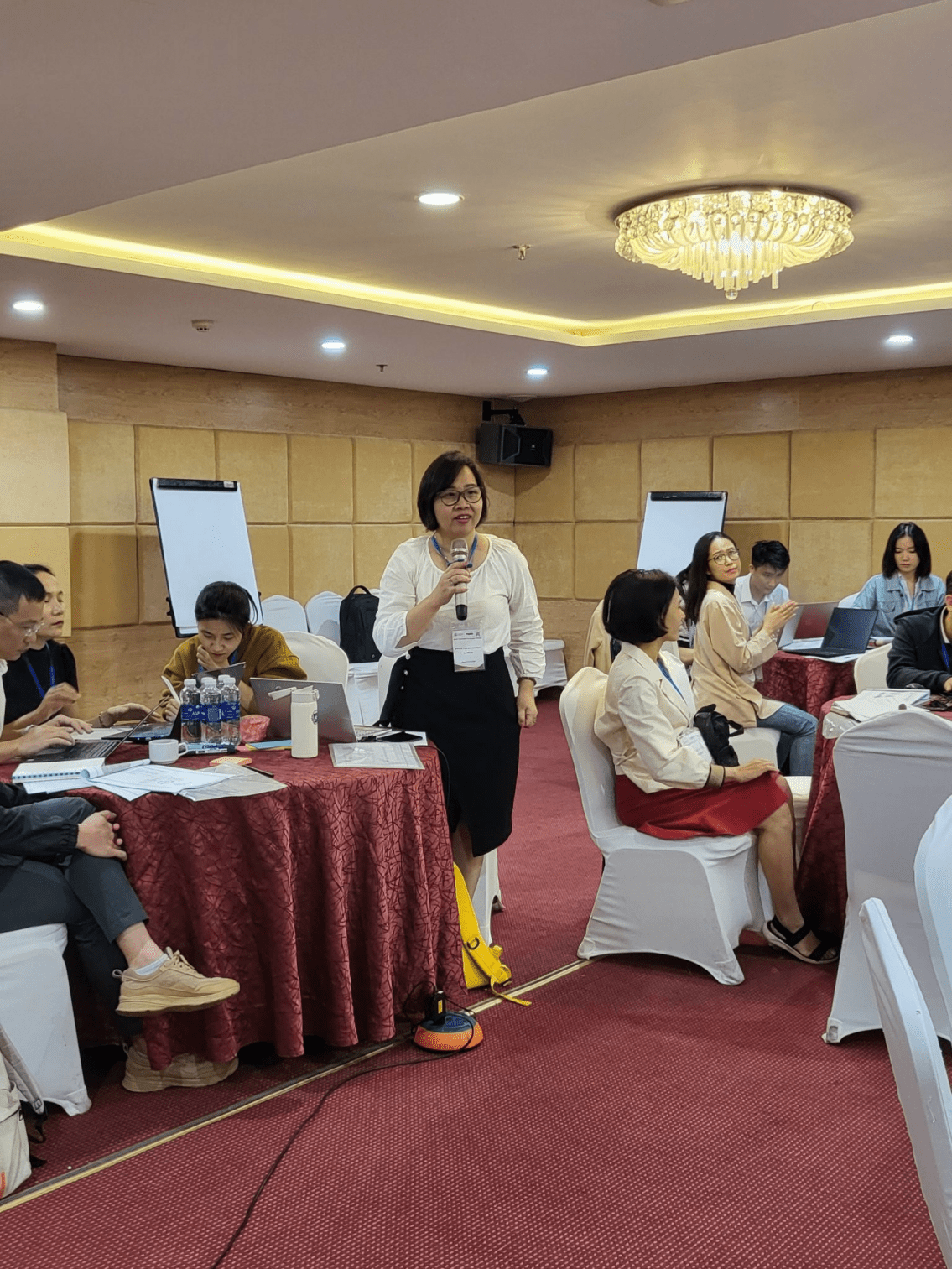By Nguyễn Thị Trang – PHANO
A training course on social and gender equality was conducted by experts from the Stockholm Environment Institute (SEI) and co- organized by GRET and the Vietnam Rural Development Science Association (PHANO) with a participation of around 20 trainees from ASSET partner organisations and members of the Agroecology Learning Alliance in Southeast Asia (ALiSEA) in Vietnam on 13-14 November 2023 in Hanoi, Vietnam.
The training was designed with the key goal of strengthening capacity and in-depth understanding of national partners on gender, integrating gender equality and social justice into the implementation of the ASSET project at all levels. The event also aimed to address the under representation of women in Vietnam’s agricultural sector. The training’s methodology was hands-on and participatory, demonstrated by various activities that helped trainees gain a deep understanding and knowledge about social and gender equality. It included activities like role-playing and discussions on gender-responsive and socially inclusive environmental design.
Mrs. Dong Thi Na, ASSET Project Coordinator for Dien Bien province shared her observations on gender role in the locality she worked at. “Currently, the role of women in rural and mountainous areas is not taken seriously. They have very few opportunities, many of them have never even attended events, meetings, or studies, ect. As a result, their knowledge and social awareness are also limited. Mrs. Na added that it was very important to take actions to encourage women’s participation. “I find it necessary to raise awareness and the role of women in participating in activities not only through project activities, but also in life. We can promote their training and interaction by utilizing local translations convenient for women. This approach should be endorsed and supported by local authorities, including the Wome’s Union, and Farmers Union.”
During the second day of this training, the trainers, Dr. Sizwile Khoza and Ms. Kuntum Melati instructed participants to use toolkits on Gender and Social Equality (GSE) mainstreaming principles and phases to integrate gender issues, social equality to implement the project locally. With the toolkits and conceptual framework, the trainees exercised the design of a gender-responsive and socially inclusive environment, in the context of ASSET project.
The 2018 Labour Force Survey by UN in Vietnam indicated that 47.5% of women who were not economically active had made this choice due to ‘personal or family-related reasons’ as opposed to 18.9% of inactive men. Despite their high overall labour market participation, women in Vietnam still faced the unequal opportunities to engage in economic activity compared to men. They participate in the labour force at a lower rate than men, and the reason for this gap was likely to be the uneven gender division of labour in family responsibilities in Vietnam society.
Another participant, Mrs. Hanh Tho, from the Center for Agrarian Systems Research and Development (CASRAD), shared her opinion about this issue “In the process of many project consultations, women only participated as a courtesy of invitation of local officials, but they could hardly express their needs. However, only when the project used gender-based approaches to promote women’s participation, could they be able to indicate their needs and desires. The responses become very interesting. They want to study and generate economic income for their families instead of just staying at home doing manual or idle work.”
Throughout the 2-day training event, the participants shared a lot of valuable knowledge and experiences. The trainers expected each trainee to have the opportunity to use this knowledge for their work and the common contribution and objectives of the ASSET project. This training underscored the importance of integrating gender and social considerations into all project activities, ensuring a more sustainable, safe, and inclusive transformation of food and agricultural systems.




